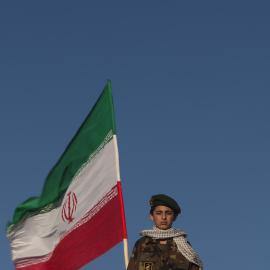To the Editor:
One of our article's key arguments is that Iran's profound economic vulnerabilities offer the United States a means of influencing Tehran's decision-making on key issues, particularly its quest for nuclear weapons. The Iranian regime may be despotic, but it also appreciates that, given its demographic realities and its hard-pressed middle class, its long-term survival depends on resolving its economic crisis.
For this reason, Shojai's assertion that the Iranian leadership is not interested in instituting deep-seated structural economic reforms actually reinforces our argument. As we noted, the theocratic leadership fears the ramifications of far-reaching privatization measures, and thus increasingly relies on foreign investment as a substitute to rejuvenate the economy. Contrary to Shojai's assertion that the theocratic leadership will never trade its nuclear program for economic incentives, there is a rather heated debate within the Iranian leadership over this very issue, and a number of Iranian leaders have argued -- albeit obliquely at times -- that Iran must make this very sacrifice, because its economic health is ultimately more important to the survival of the regime. Supreme Leader Seyed Ali Khamenei himself has agreed to make important concessions (particularly the ongoing suspension of uranium enrichment) for fear of jeopardizing Iran's commercial ties with Europe. We recognize that ultimately, if faced with a clear-cut choice between economic health and a nuclear weapon, the clerical regime may opt for the latter. But if they do so it will not be because, as Shojai claims, no one in Iran will have argued for the opposite course or because the West could do nothing to influence the debate.
As part of the broader battle over their country's nuclear program, its economic strategy, and its relationship with the West, some Iranian leaders have made the same claim as Kroenig -- that Iran need not bow to Western demands because it will be able to secure trade and investment from powers such as China, India, and Russia. As we noted in the article, however, this argument is belied by Iran's economic realities, a point consistently emphasized by the technocrats who must implement Tehran's economic policies, as well as by the more pragmatic members of the regime itself. The Chinese, Indian, and Russian economies simply cannot generate the capital that Iran requires to keep its decrepit economy afloat, nor are they likely to be able to do so for years to come.
Despite Kroenig's claims, China accounts for only about 9 percent of Iran's trade. Europe remains Iran's largest trading partner, accounting for 33.2 percent, and Japan is second, at roughly 15 percent. As for India, Iran currently trades more with the United Arab Emirates. Moreover, as we suggest, a viable package of economic incentives for Iran would include lifting U.S. sanctions and opening up Iran to U.S. investment, trade, and technology. China and India may be important emerging industrial powers, but the United States is still the economic colossus of the world. As many Iranian leaders have already begun to imply, Iran's economic and security interests would best be served by a more rational relationship with the United States, particularly if Washington's position is supported by its European and eastern Asian allies.
And although it is certainly true that Iran has recently signed a handful of blockbuster energy deals with China and India, the rosy headlines often obscure starker economic realities. The deals concluded to date represent only the most preliminary phases of projects that, particularly in the case of the proposed pipeline to India, entail enormous political, commercial, and geological risks. In addition, projects of this scale are unlikely to move forward without significant Western capital and technical expertise -- precisely the sort of assistance that the West could prohibit if Iran stubbornly pursued the path of confrontation. Iran is endowed with the world's third-largest natural gas reserves, but it lags far behind its main competitor, Qatar, in developing export markets and reaping commercial rewards. Over the long term, Iranian energy ties to regional superpowers such as China and India are likely to intensify and may well reshape the dynamics of Tehran's interactions with Washington. In the near future, however, these deals will neither address Iran's underlying economic problems nor insulate its government from Western pressure.
On April 18, the leading Iranian newspaper Eqbal mused on Iran's economic quandaries: "Iran has less bargaining power in the global markets because America has left its economic equation. In other words, it is impossible for a country to achieve its minimum interests without considering America in today's world. In the circumstances of globalization, not having relations with America is tantamount to isolation in the world and wasting the interests of the country."
It seems that the Iranians have a different perception of the centrality of the United States in their economic situation than some Western academics.
KENNETH POLLACK
Director of Research, Saban Center for Middle East Policy at the Brookings Institution
RAY TAKEYH
Senior Fellow in Middle East Studies, Council on Foreign Relations
